SHAPIRO FELLOWS SHARE PLANS FOR THE FUTURE AT APPRECIATION LUNCH
UCLA Luskin’s Shapiro Fellows shared their impactful experiences and plans for the future at a lunch with Peter Shapiro, whose family has provided generous support to students from all three of the School’s graduate programs. UCLA alumni Ralph and Shirley Shapiro have maintained a lifelong commitment to helping the Bruin family. Their son Peter is president of the Shapiro Family Charitable Foundation, which supports organizations that advocate for the arts, education, environmental issues, religious causes, children’s health and human rights.
◊
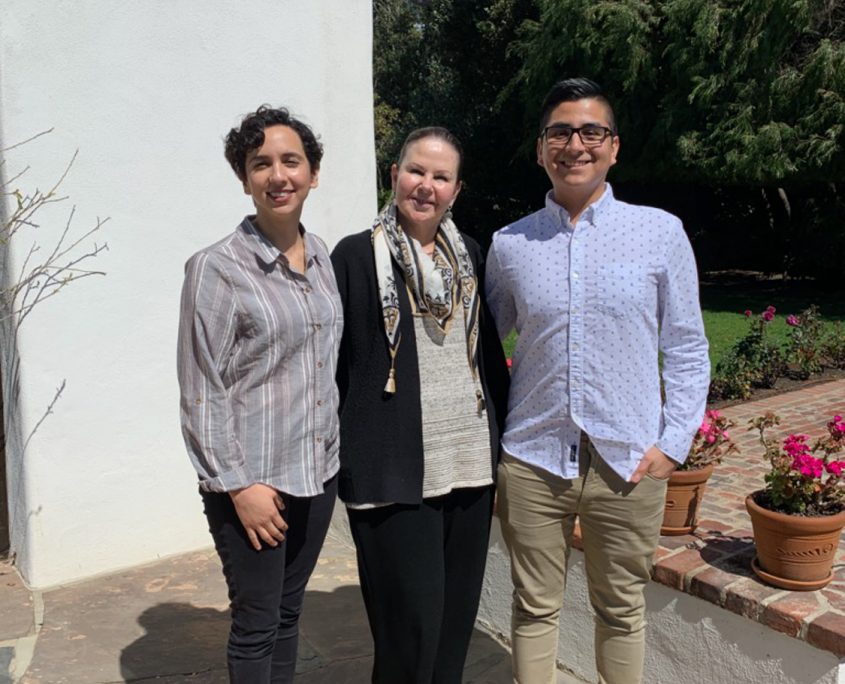
Monica Salinas, center, with Gabriela Solis and Julio Mendez-Vargas.
RECIPIENTS OF MONICA SALINAS FELLOWS MEET FOR LUNCH
Monica Salinas hosted recipients of her fellowship over lunch at her home in March. Established in 2005, the Monica Salinas Fellowship is awarded to students who have an interest in public policy issues affecting Latinos. Of particular interest are the contributions and achievements of the emerging Latino community as it plays an increasingly important role in our country’s social, economic, cultural and political life. The 2018-19 fellowship recipients are Gabriela Solis, a dual MPP and MSW student,
and Julio Mendez-Vargas, an undergraduate Political Science major and Public Affairs minor. The students, who are on track to graduate in June, have worked closely with the Latino Policy & Politics Initiative at UCLA Luskin.
◊
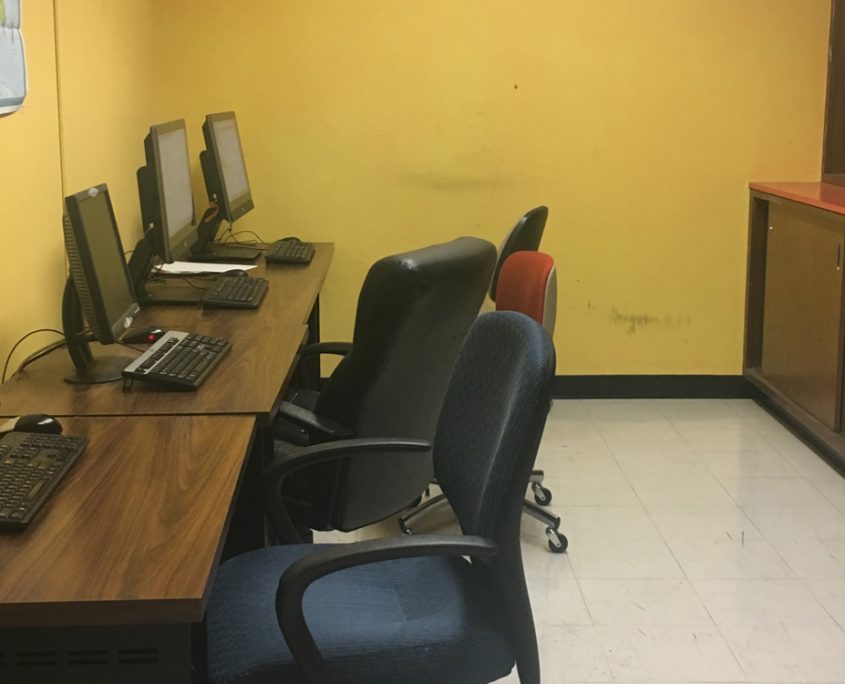
Old Ph.D. Suite

New Ph.D Suite
PH.D. SUITE RECEIVES NEW COMPUTER LAB
Thanks to generous support from The Ahmanson Foundation, a newly modernized computer lab is nearing completion for doctoral students at UCLA Luskin. The project provided the perfect opportunity to redesign the old lab space and customize it to better fit the needs of our students. The refurbished lab is now equipped with brand-new computers, specialized software and upgraded furniture. Its open layout is conducive to students working individually or collaboratively. An adjoining office space was converted into a conference room to accommodate private meetings and has videoconferencing capability.
◊
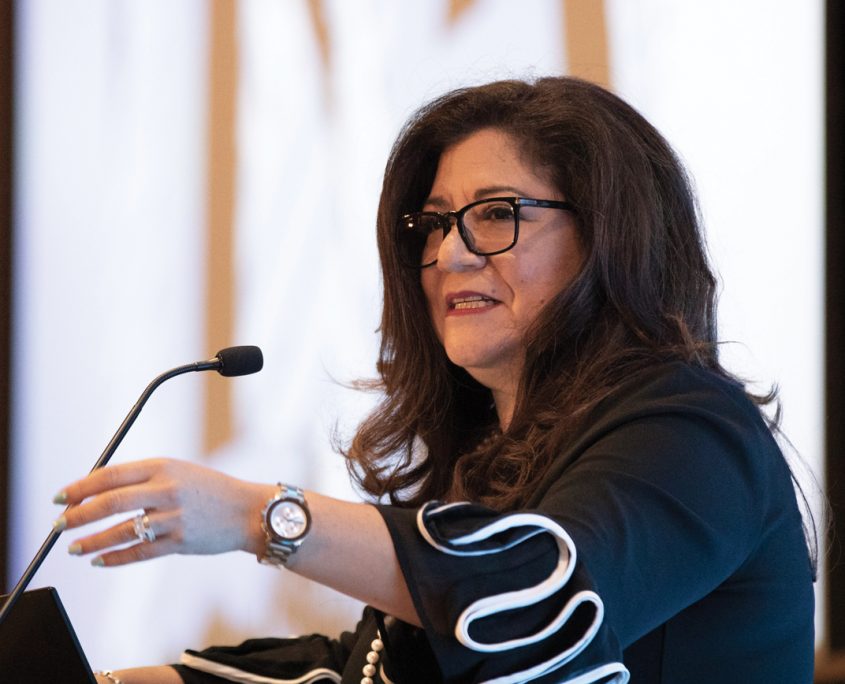
Dannielle Campos, senior vice president with Bank of America, welcomes summit participants.
INAUGURAL ‘LUSKIN SUMMIT’ ADVOCATES FOR A LIVABLE L.A.
The UCLA Luskin School of Public Affairs marked its 25th anniversary with the inaugural “Luskin Summit 2019: Livable L.A.” — made possible by support from sponsors Bank of America, the Los Angeles Rams, The California Endowment, Guidehouse, the Southern California Leadership Network and ABC7, which also served as the media partner. Leaders from government; business; academia; and the civic, nonprofit and philanthropic spheres gathered at the summit for a cross-sector conversation centered on the latest UCLA Luskin research. “We do hope you learned more about the great work at the Luskin School and that you’ll be our advocates out in the community, helping us make an even greater impact,” Dean Gary Segura told supporters at the close of the summit. “We ask that you become engaged with the Luskin School in a variety of ways: host students as interns or hire our graduates, fund summer internships or full-year fellowships, learn more about our faculty research and support it, and connect us with others who want to learn more about our great work and the progress we are leading.” Segura concluded, “Philanthropy truly makes our work possible and we have so much more we want do to.”
◊
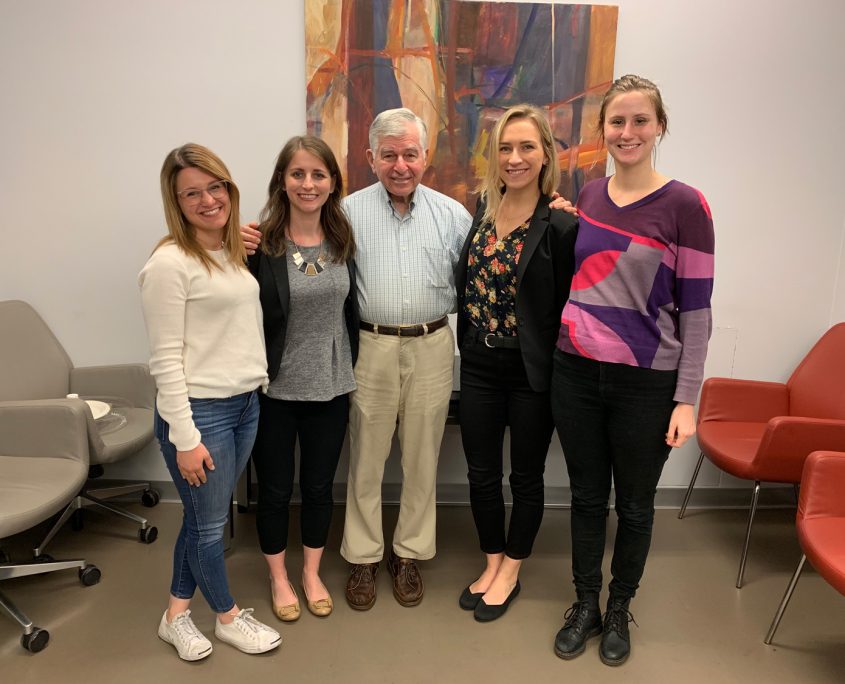
Michael Dukakis, center, with this year’s internship recipients.
DUKAKIS MEETS WITH STUDENT FELLOWS
This spring, former Massachusetts Gov. Michael Dukakis met recipients of the Michael S. Dukakis Internship award to hear about their experiences. Dukakis spearheaded this privately funded internship program to provide students with first-hand public service experience in government. As power shifts from Washington, D.C., to the state and local level, the need for talented public servants has never been greater. The internship program provides stipends for students serving in nonpartisan internships in government, with a special emphasis on California.
◊
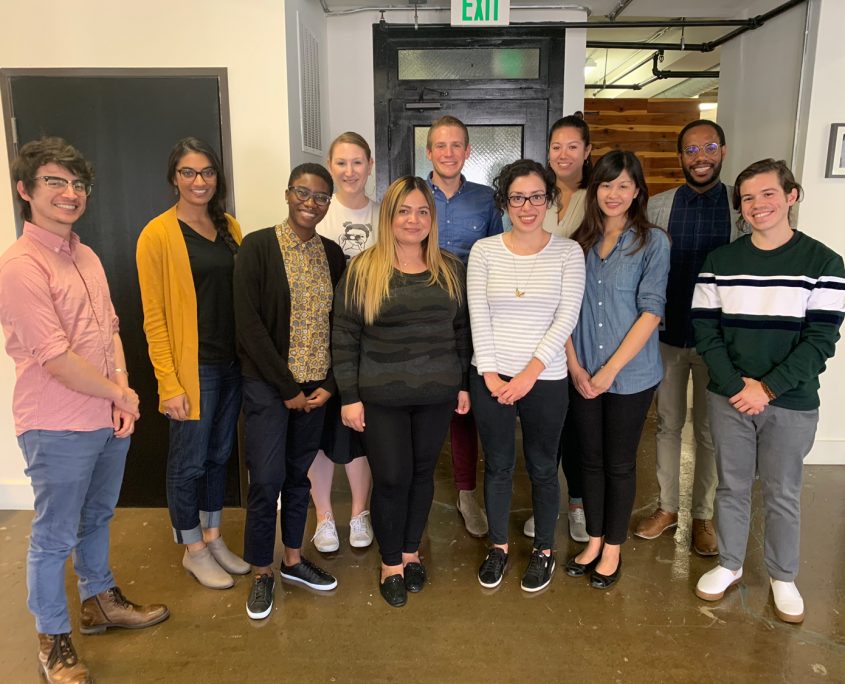
Michael Loper, center in blue shirt, at Estolano LeSar Advisors.
ESTOLANO LESAR ADVISORS ESTABLISH SUMMER INTERNSHIP AWARD
Luskin alumnae and business partners Cecilia Estolano and Jennifer LeSar established a summer internship award for deserving students in urban planning. Each summer, one graduate student will receive a stipend while developing professional skills working at a nonprofit organization that offers critical services in areas such as affordable housing, sustainability, transportation, land use, or workforce and economic development. The first recipient of the award was Michael Loper, a dual MURP and MPH candidate, who interned at the Los Angeles Food Policy Council last summer to help communities achieve food justice and social equity. Estolano LeSar Advisors invited Loper for lunch at their office in downtown L.A. to share his experience.






